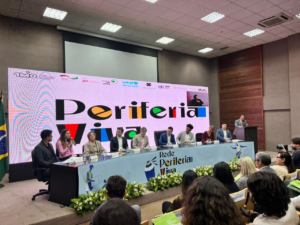The Brazilian government has decided to implement approaches from the Transformative Urban Coalitions (TUC) project. IDOS has been working on the project since 2021 with local and international partners to establish and research urban labs in five Latin American cities in Argentina, Brazil and Mexico.

©Vivian DalLin, WRI Brasil
In a participatory process, representatives of municipal governments, civil society, academia and the private sector are developing and beginning to implement approaches to sustainable urban development that also mitigate CO2 emissions. IDOS is implementing this Transformative Urban Coalitions (TUC) project together with the Institute for Environment and Human Security of the United Nations University (UNU-EHS), the World Resources Institute (WRI), and the International Institute for Environment and Development (IIED) with funding from the German government’s International Climate Initiative (IKI).
The Brazilian government has now decided to implement this innovative project approach as part of a new program at national level. In 2024, the Brazilian Ministry of Cities launched a national program to support poorer urban areas called Periferia Viva. In a first round, 58 urban areas nationwide will receive a total equivalent of 900 million Euros in support. The inclusive and local approach to planning the respective measures is based on the Urban Lab approach tested in the TUC project and the experiences gained there, and was incorporated into the Periferia Viva guide.
A study coordinated by IDOS had recently shown that setting up such labs in difficult contexts is challenging, but can be achieved by flexibly applying locally appropriate approaches to moderate and support the process. The experiences of the five Urban Labs within the TUC project also show that the approach can promote trust, new ties, networks and knowledge exchange among local actors and with supralocal actors. These social conditions are essential for successful local planning and implementation of transformative and sustainable urban development. In addition to continuing the project, the TUC project partners will also provide advice on the implementation of Periferia Viva in the future.

Schreibe einen Kommentar